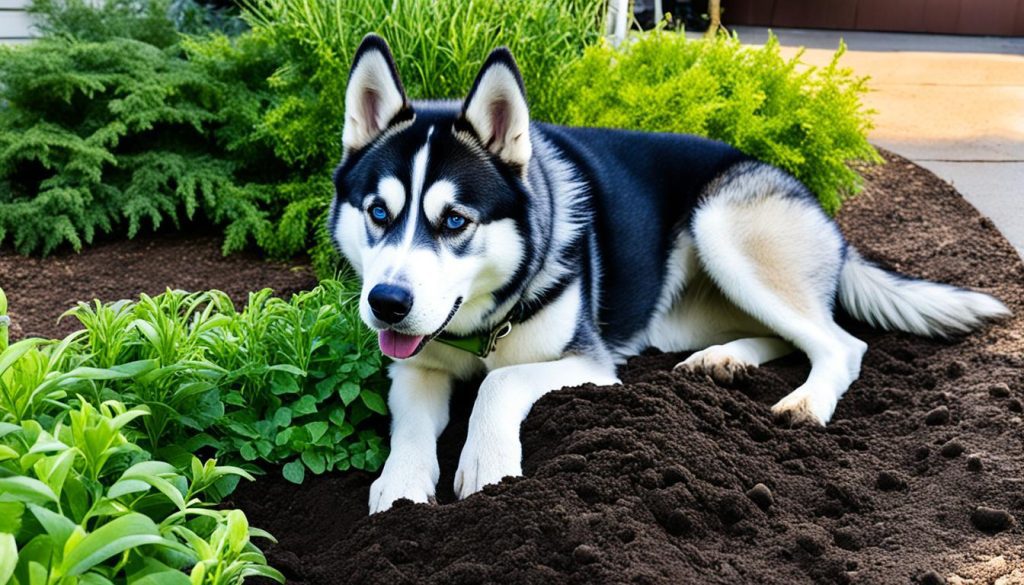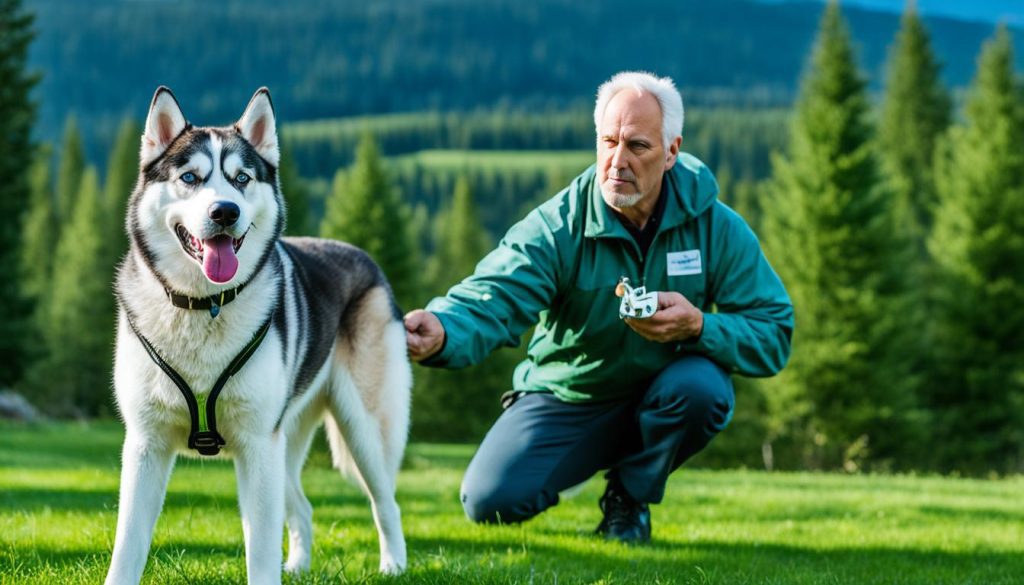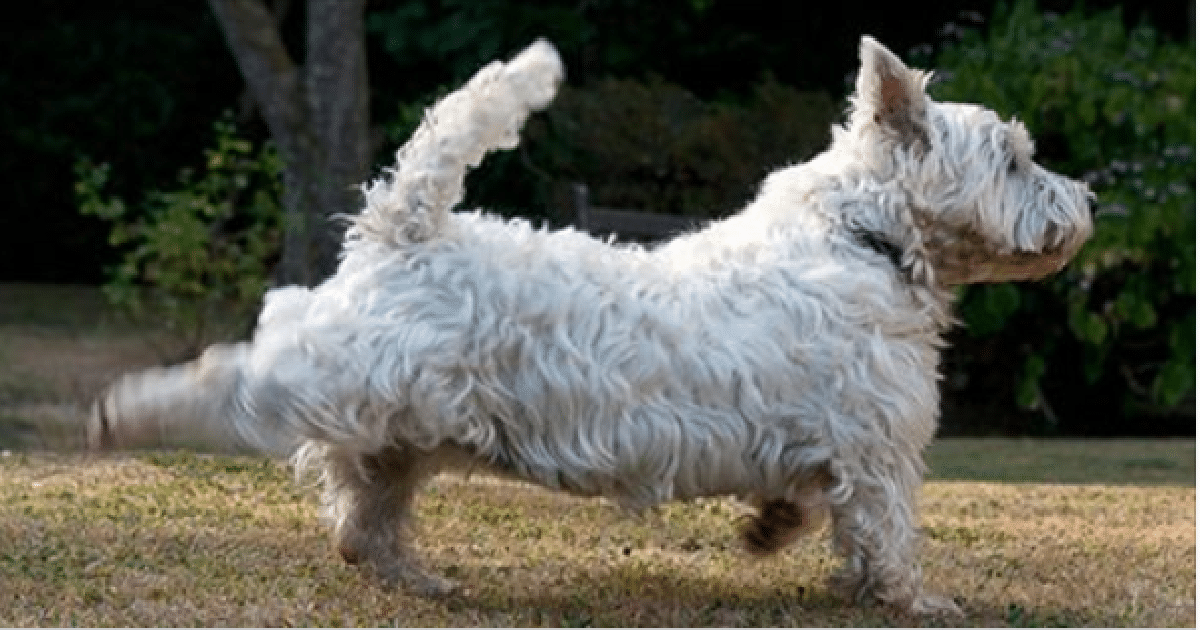I’m thrilled to dive into the topic of Siberian Huskies and their intelligence. As a dog lover, I’ve always been curious about the cognitive abilities of different breeds, and the Siberian Husky is no exception. So, are Siberian Huskys smart? Let’s find out!
When it comes to measuring intelligence in dogs, there are various factors to consider. While Siberian Huskies may not rank among the smartest dog breeds in terms of obedience and the ability to learn new commands, they possess a unique intelligence that goes beyond traditional measurements.
Huskies rank 74th out of 138 dog breeds in terms of their success rate in obedience and learning new commands. This average intelligence level might make some people underestimate their mental capabilities. However, it’s important to look beyond obedience trials to truly appreciate their intelligence.
What sets Siberian Huskies apart is their instinctive and adaptive behavior. These dogs have exceptional cognition when it comes to their natural herding instincts and resourcefulness. They demonstrate their intelligence through their problem-solving skills, independent thinking, and strong-willed personalities.
Are Siberian Huskys Smart?
- Siberian Huskies rank 74th out of 138 dog breeds in terms of obedience and learning new commands.
- Their intelligence goes beyond traditional measurements and can be observed in their instinctive and adaptive behaviors.
- Huskies exhibit strong problem-solving skills and independent thinking.
- Their resourcefulness and strong-willed personalities showcase their intelligence.
- While they may not excel in obedience trials, their unique intelligence makes them fascinating companions.
The Personality and Traits of a Siberian Husky
Siberian Huskies have a playful and loving personality, making them great family pets. They are not suspicious of strangers and do not make good guard dogs. They love spending time with their families and enjoy the company of humans.
However, their resourcefulness and energy levels can lead them to engage in mischievous behaviors if not properly stimulated. These dogs were originally bred as sled dogs, which requires a high level of energy and endurance.
They have a strong sense of adventure and can run for long distances without tiring easily. Their ability to navigate and find their way back home from miles away showcases their intelligence and adaptability.
However, their stubbornness can make them challenging to train and may require extra motivation and reward-based training methods.
Key Traits of Siberian Huskies:
- Playful and loving
- Not suspicious of strangers
- Not suitable as guard dogs
- High energy levels
- Resourceful and intelligent
- Strong sense of adventure
- Inclination towards mischievous behaviors if not properly stimulated
- Challenging to train due to stubbornness
Huskies as Sled Dogs
The Siberian Husky breed has a long history as sled dogs, which contributes to their energetic and endurance-driven nature. They are well-suited for pulling heavy loads over long distances in harsh environments.
Their energy levels and natural athleticism make them highly efficient working dogs. Whether it’s a winter sled race or a recreational sled ride, Siberian Huskies excel in harnessing their strength and speed.
| Traits | Description |
|---|---|
| Energy Levels | High |
| Endurance | Excellent |
| Strength | Impressive |
| Speed | Fast |
Common Behavior Problems in Siberian Huskies
Siberian Huskies are intelligent and energetic dogs, but their unique traits can sometimes lead to behavior problems. It’s essential for Husky owners to understand and address these issues to ensure a harmonious household.
Separation Stress and Excessive Vocalization
Huskies are known to develop separation stress when left alone for extended periods. This can lead to excessive vocalization, including howling and barking, as a way to express their anxiety and loneliness. To alleviate separation stress, it’s crucial to gradually accustom your Husky to being alone and provide them with interactive toys or puzzles to keep them mentally stimulated.
Destructive Chewing and Escaping Tendencies
Due to their high energy levels, Huskies can resort to destructive chewing when they are bored or anxious. Providing them with appropriate chew toys and ensuring they get enough exercise can help redirect this behavior. Additionally, Huskies are skilled escape artists and may try to dig under fences or jump over obstacles. Proper fencing and secure containment are necessary to prevent them from running off.
Prey Drive and Running Off
Huskies have a strong prey drive, which means they may be inclined to chase and harm small animals. It’s important to keep them on a leash or in a securely enclosed area when around smaller pets. Even well-trained Huskies can be tempted by their instinctual urge to run and explore, so caution should always be exercised when taking them off-leash.
Huskies and Small Animals
As mentioned earlier, Huskies have a natural prey drive, which may put them at odds with smaller animals such as cats, rabbits, or birds. It’s essential to closely monitor their interactions with small animals and take precautionary measures to ensure the safety of both the Husky and the smaller pet.
Huskies and Children
Siberian Huskies are generally good with children and can form strong bonds with them. However, it’s important to supervise their interactions to ensure the safety of both the child and the dog. Huskies have a playful nature and may unintentionally knock over or overpower smaller children. Teaching children how to properly interact with dogs and setting boundaries for both parties is essential.
| Behavior Problem | Description | Prevention/Treatment |
|---|---|---|
| Separation Stress | Expressed through excessive vocalization when left alone | – Gradual desensitization to being alone |
| Destructive Chewing | Caused by boredom or anxiety | – Provide appropriate chew toys and regular exercise |
| Escaping Tendencies | Attempting to run off or escape from containment | – Ensure secure fencing and supervised outdoor time |
| Prey Drive | Tendency to chase and harm smaller animals | – Keep on a leash and closely supervise interactions |

Tips for Training and Managing Siberian Huskies
Training and managing Siberian Huskies can be a rewarding experience, but it requires a patient and consistent approach. These intelligent and independent dogs can sometimes be stubborn, so it is important to use motivation and rewards to keep them engaged in training.
Here are some valuable Husky training tips:
- Start training early: Begin training your Husky from a young age to establish good habits and routines. This will help them understand what is expected of them and prevent behavior problems in the future.
- Be positive and patient: Use positive reinforcement techniques, such as treats and praise, to reward your Husky for good behavior. Avoid harsh punishments, as it can make them fearful and result in unwanted behaviors.
- Make training sessions short and fun: Huskies have a short attention span, so keep training sessions brief and engaging. Incorporate games and interactive activities to make it enjoyable for both you and your dog.
- Provide regular exercise: Huskies are an active breed that requires plenty of exercise to stay physically and mentally stimulated. Take them for daily walks, play fetch, or engage in activities like agility training to keep them happy and prevent behavioral issues caused by boredom.
- Offer mental stimulation: In addition to physical exercise, provide your Husky with mental stimulation to keep their minds sharp. Puzzle toys, interactive feeders, and obedience training that challenges their problem-solving abilities can help prevent destructive behavior.
- Focus on socialization: Proper socialization is crucial for Huskies to get along well with other dogs and small animals. Introduce them to various environments, people, and animals in a positive and controlled manner to ensure they are well-adjusted and friendly.
- Seek professional help if needed: If you’re facing difficulties in training your Husky or managing their behavior problems, don’t hesitate to reach out to a professional dog trainer or behaviorist who specializes in working with Huskies. They can provide guidance and tailor training methods to suit your Husky’s unique needs.
Remember, training and managing a Husky requires time, patience, and consistency. By following these tips and providing your Husky with the right balance of exercise, mental stimulation, and socialization, you can ensure a fulfilling and harmonious relationship with your furry friend.

Conclusion
Siberian Huskies possess a unique blend of intelligence and instinctive behaviors. While they may not be top performers in traditional obedience trials, their adaptive intelligence, showcased through their resourcefulness and history as sled dogs, is undeniable. To ensure their well-being, it is crucial to provide them with proper training, exercise, and mental stimulation.
Understanding the personality and energy levels of Huskies is vital in preventing behavior problems and fostering a happy and fulfilling life for these remarkable dogs. Their playful and loving nature, coupled with their need for adventure, calls for an environment that allows them to explore and run, accompanied by outlets for their cognitive abilities.
By appreciating the unique traits and behaviors of Siberian Huskies and catering to their individual needs, dog owners can develop a bond built on trust and mutual understanding. With the right approach, Siberian Huskies can thrive as intelligent, loving companions, bringing joy to their families and enriching their lives.






